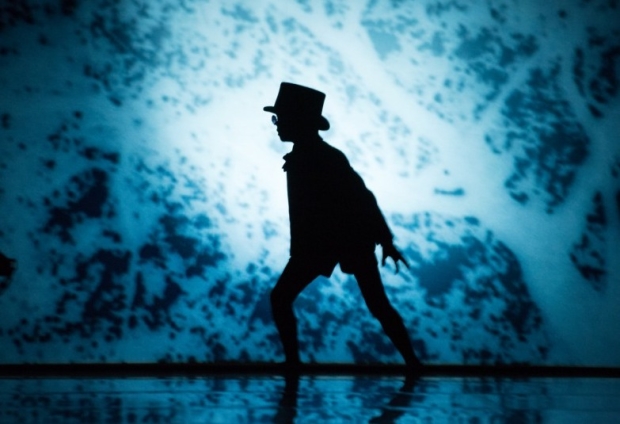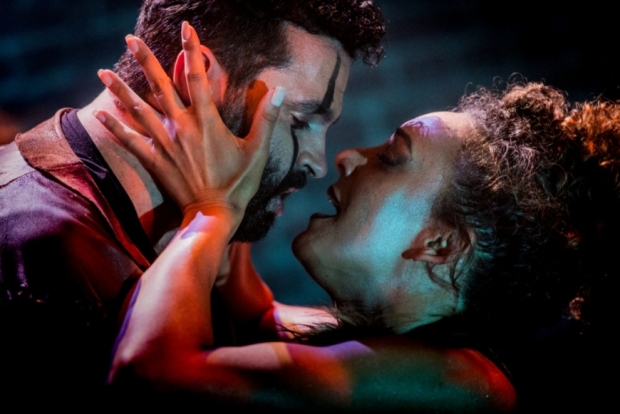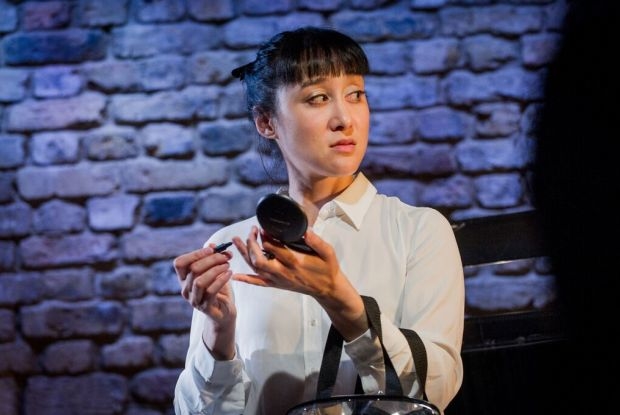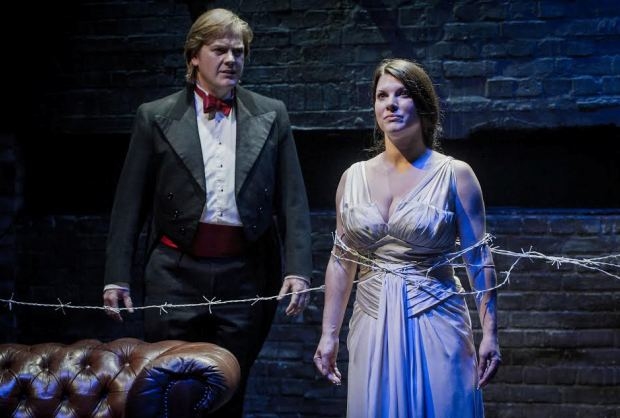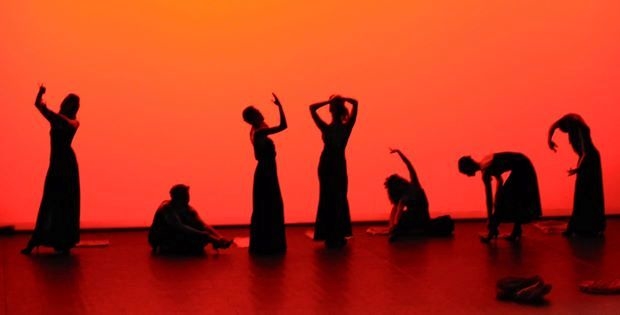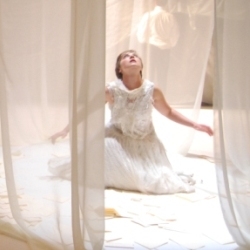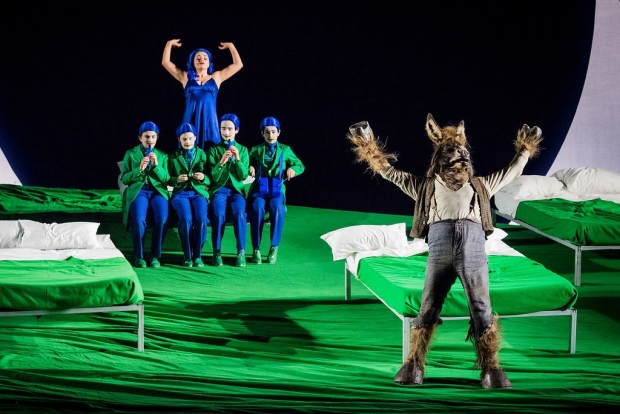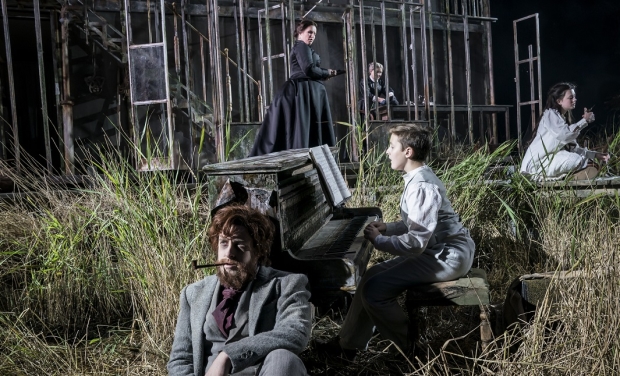Review: The Rape of Lucretia (Arcola Theatre)
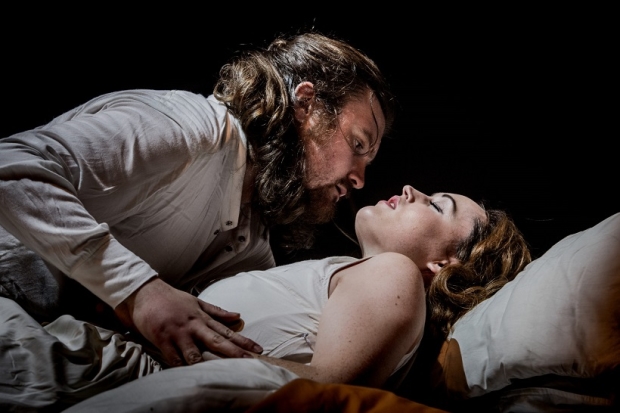
© Robert Workman
Let's start with a grumble. The Arcola's free programme sheet names the assistant bar manager and a sustainability assistant but cannot find room for the 12 instrumentalists of the Orpheus Sinfonia who deliver Britten's score so splendidly under Peter Selwyn's direction. It also misspells Nick Pritchard's name, and since the tenor is the best thing in the show that's an added peeve.
I mention this because it tallies with previous experience of the theatre's annual Grimeborn opera season. Less a curated festival than a house-filler during quiet summers, no one seems to exercise quality control over it. Yet nuggets do slip through the net, and a hopeful traveller is always on the look-out for glimmers. The name of Julia Burbach for The Rape of Lucretia stood out this year, since as well as being a busy director in her own right she is an experienced reviver of other people's work for the Royal Opera and elsewhere.
Britten's follow-up to Peter Grimes opened at Glyndebourne in 1946. For all its beauty – the score is one of the composer's most limpid and affecting – this work has always been problematic, and not just for the subject matter. The poet Ronald Duncan's impossibly florid libretto mitigates against communication, a point Britten himself hinted at in his foreword to the published opera: "To be suitable for music, poetry must be simple, succinct and crystal clear". He never let himself be had that way again.
The opera is what it is, though, awash with torrents of fervid stuff about angry blood raging for the quietus of Lucretia's thighs, and a good production (which this is) accepts that and goes for it.
The work's unorthodox dramatic structure (a male and female Chorus narrate the tale while six more singers enact it) makes it better suited to directorial intervention than Britten's other operas. Burbach's take on the two storytellers is particularly intriguing: dressed in modern black, they carry a Bible at all times yet seem to relish the lascivious side of the story as they goad the priapic Tarquinius towards those aforementioned thighs. Religious hypocrisy, then? Or something more fatalistic? It's our choice, but her idea nicely acidulates the cloying Christian message that closes the opera.
The staging, notably well lit by Rob Price, is of necessity simple, but it is full of interest and beautifully sung throughout. Pritchard and Natasha Jouhl as the Male and Female Chorus never leave the stage and are alive to every flicker of subtext in their taxing roles. Mezzo Bethan Langford is a tragic Lucretia, her long-tressed wig and nightgown lending a hint of Lucia di Lammermoor to her morning despair, and James Corrigan is insidiously persuasive as Junius, the devil on a rapist's shoulder who spurs him on to the thrill of the chaste.
Baritone Benjamin Lewis is a gruff and plausibly dangerous anti-hero who appears doubly intimidating in the intimate Arcola space, and there are fine contributions from Andrew Tipple as Lucretia's cuckolded husband Collatinus and from Claire Swale and Katharine Taylor-Jones as her helpless companions.
One moment that sums up the production's care is the series of drawn-out Good Nights that close act one. The writing here is Britten at his most arch and English but for once, thanks to Burbach's meticulous direction, it crackles with tension and incipient dread.



